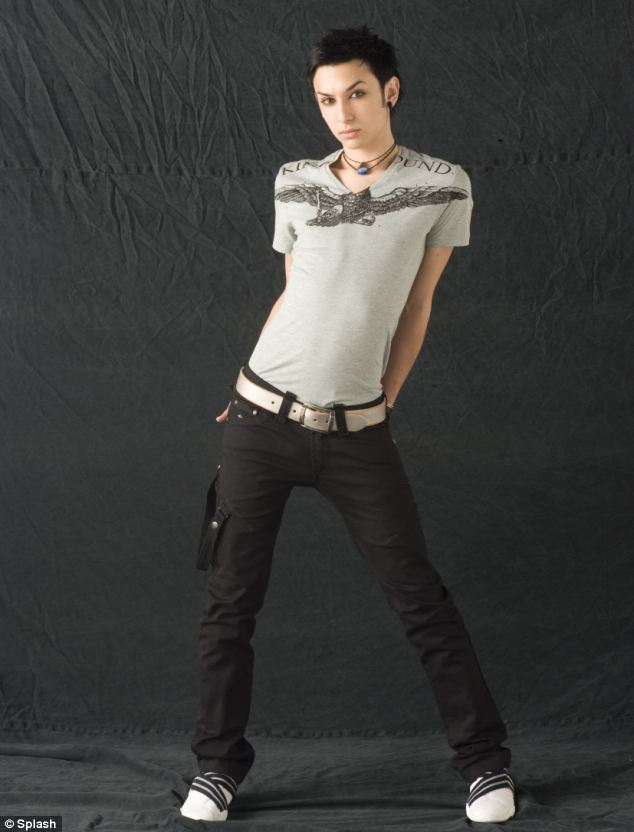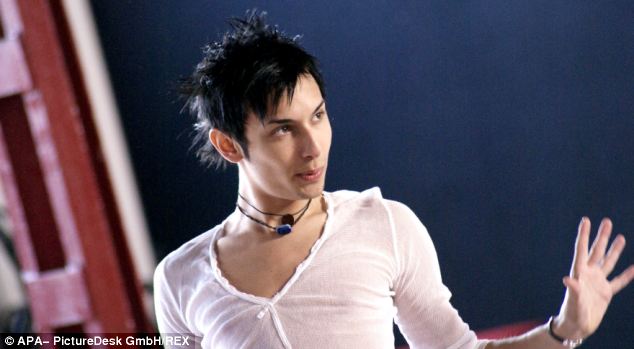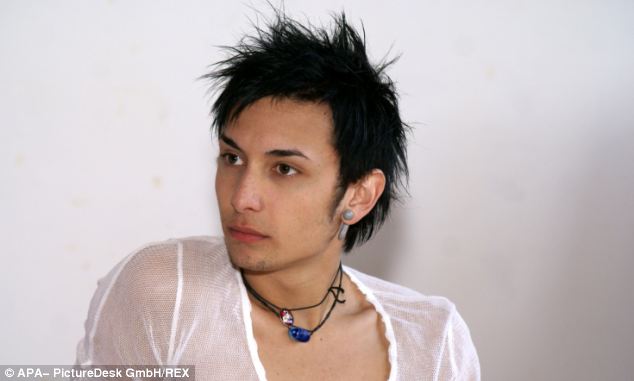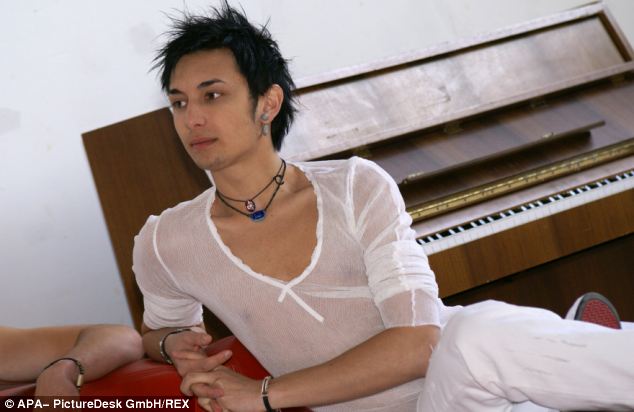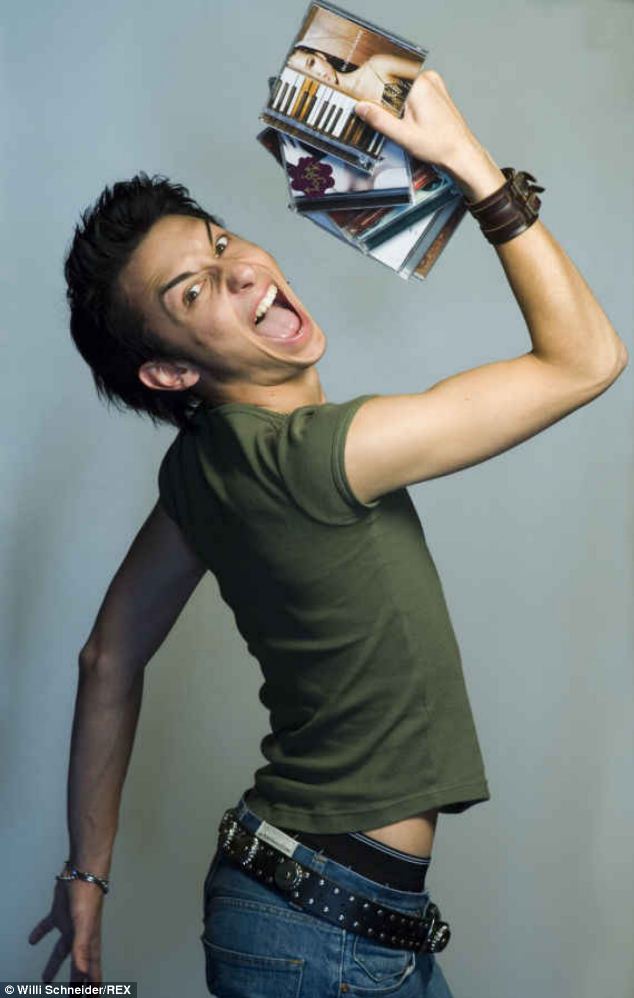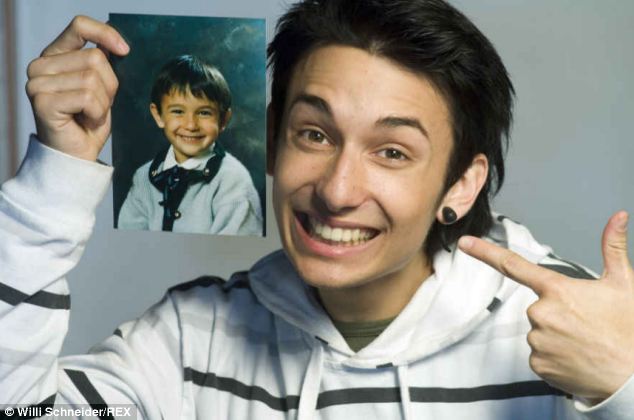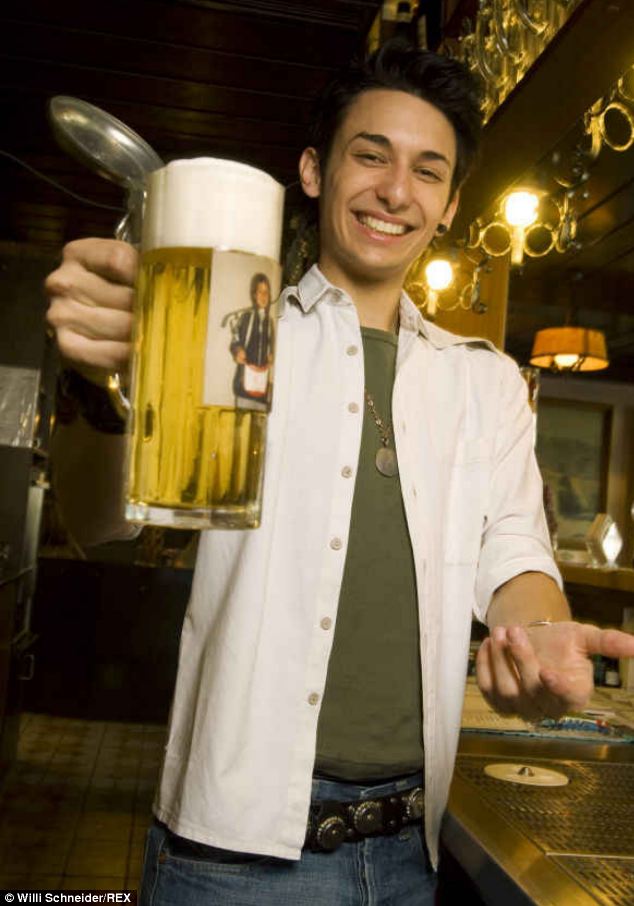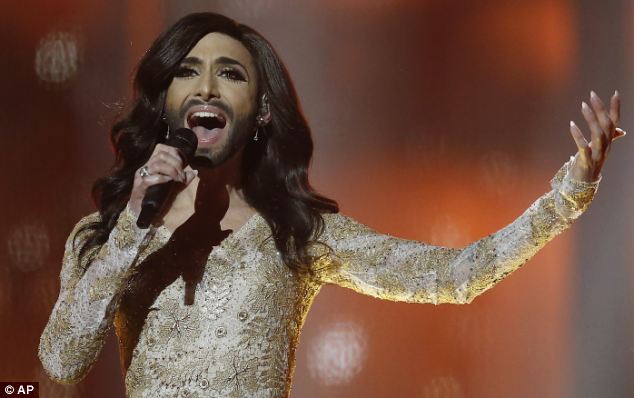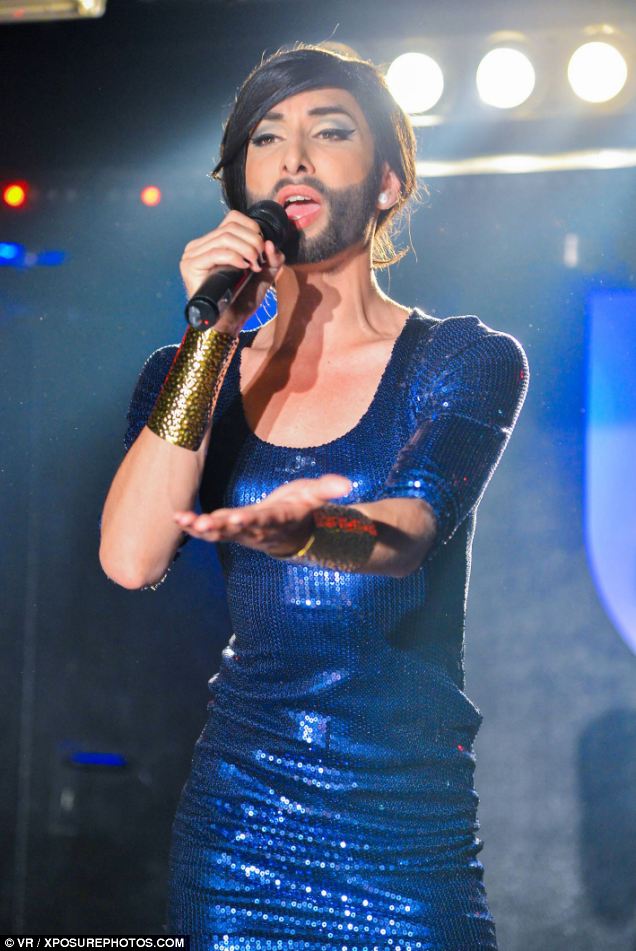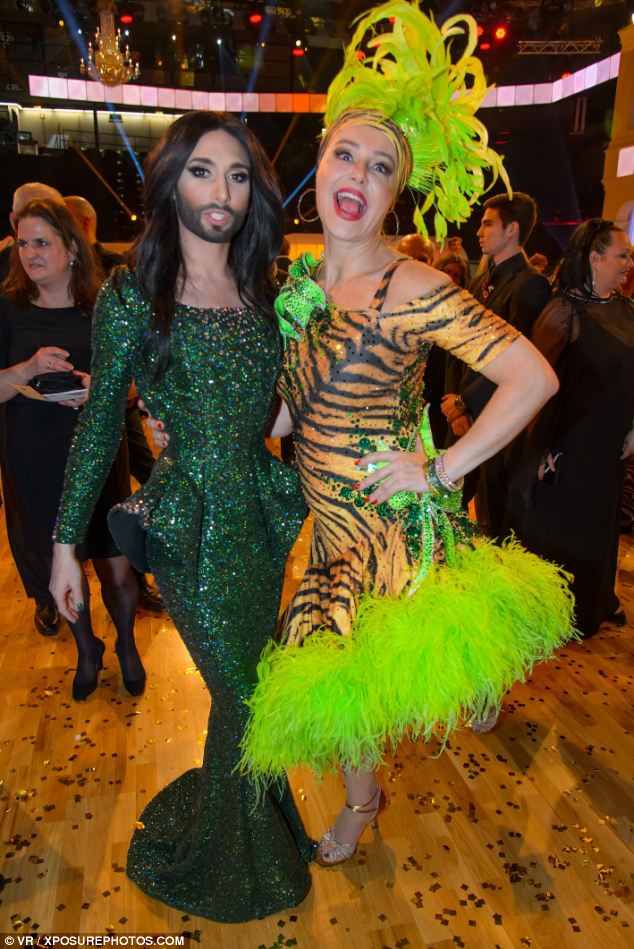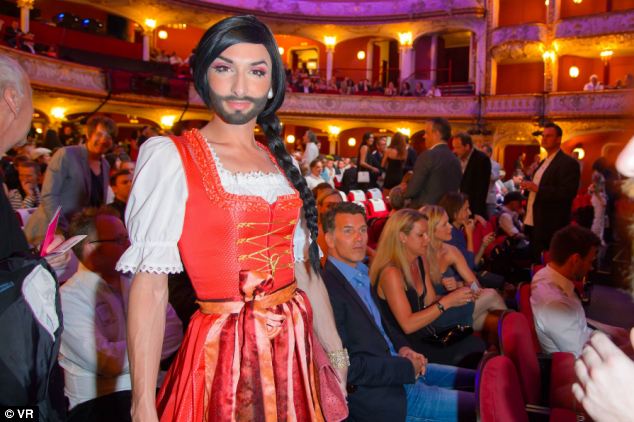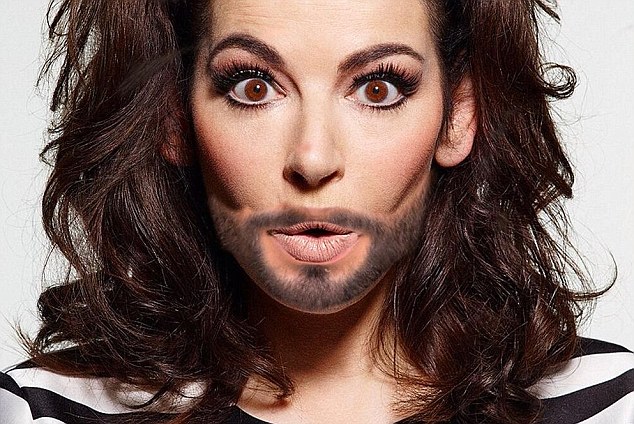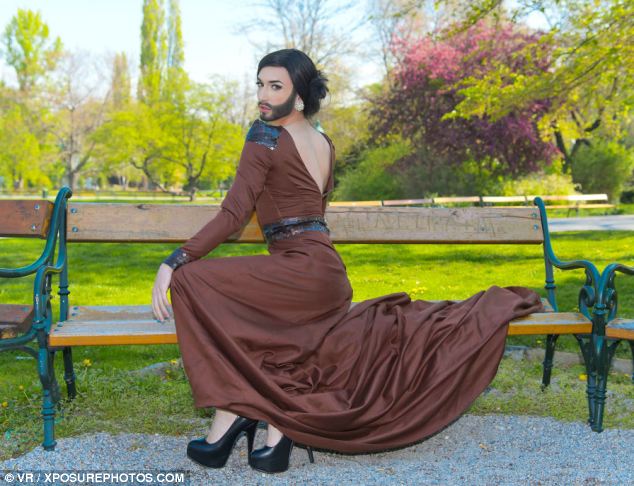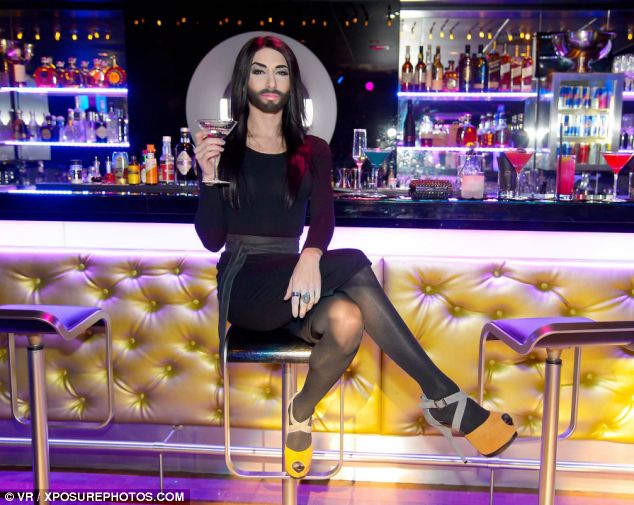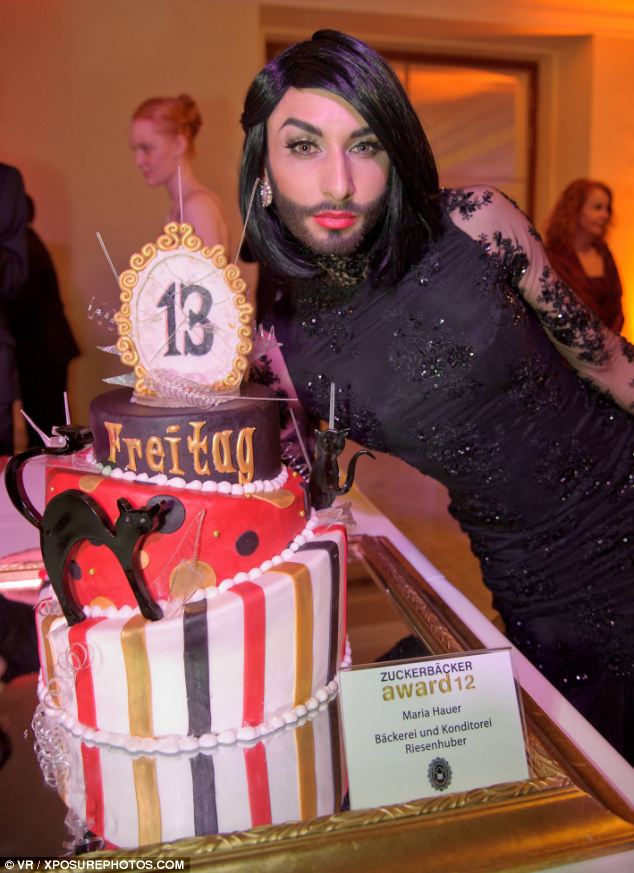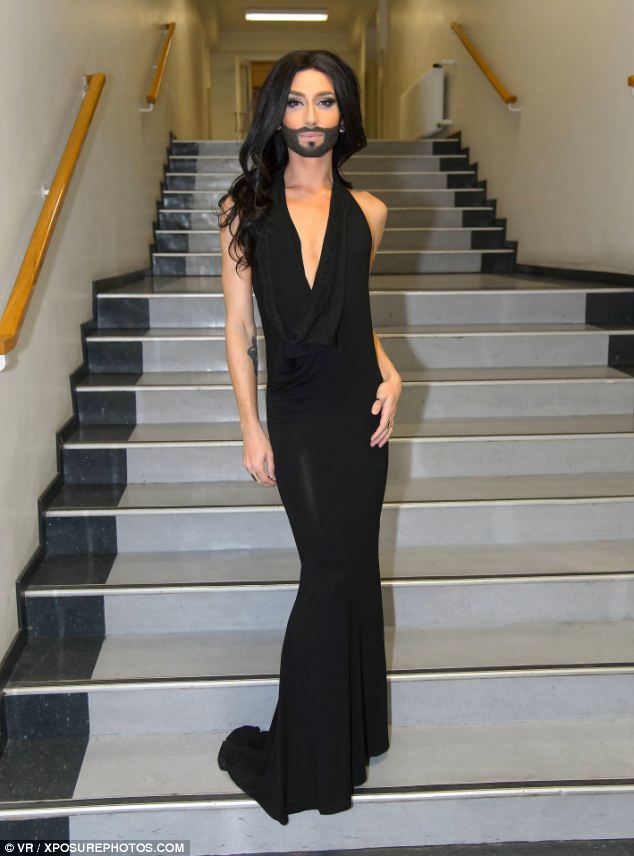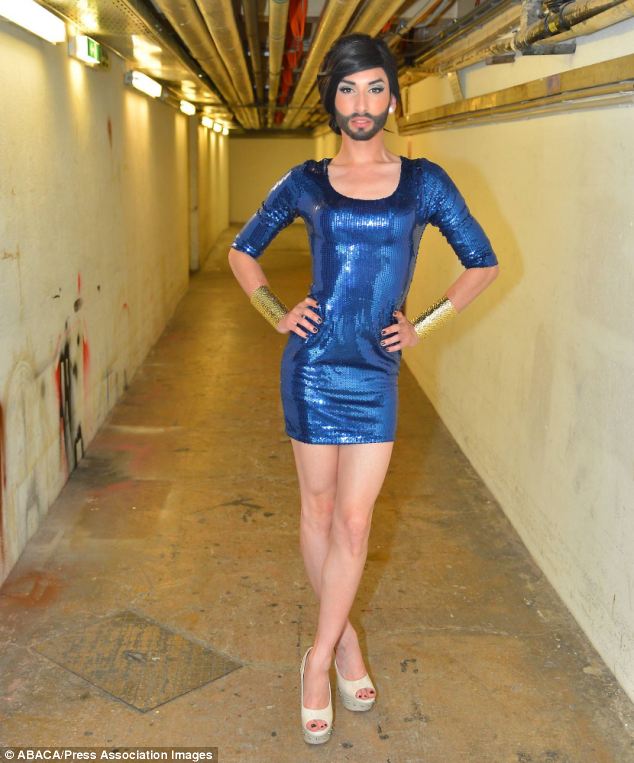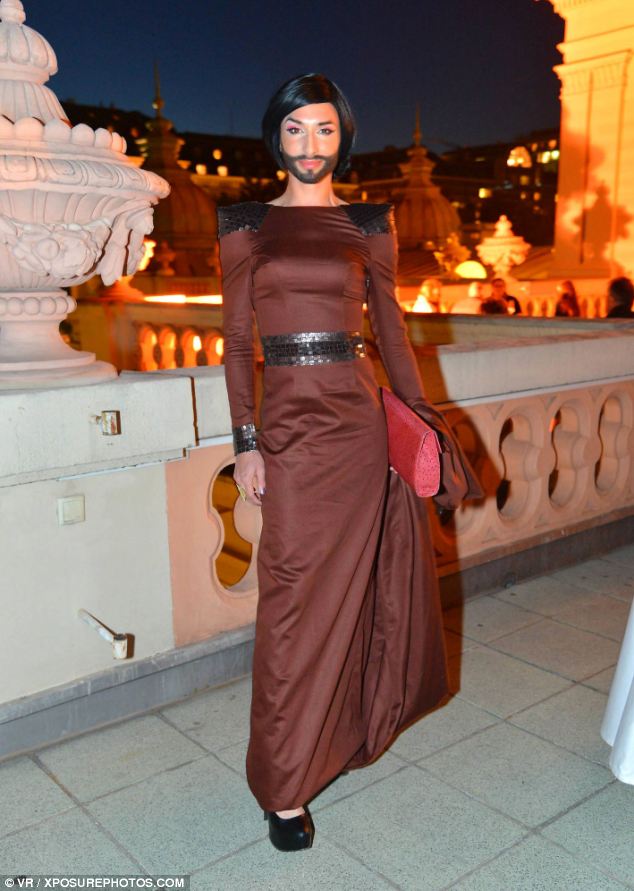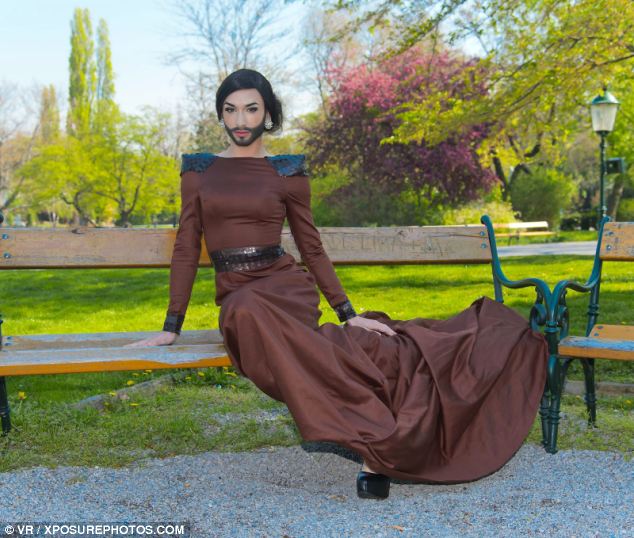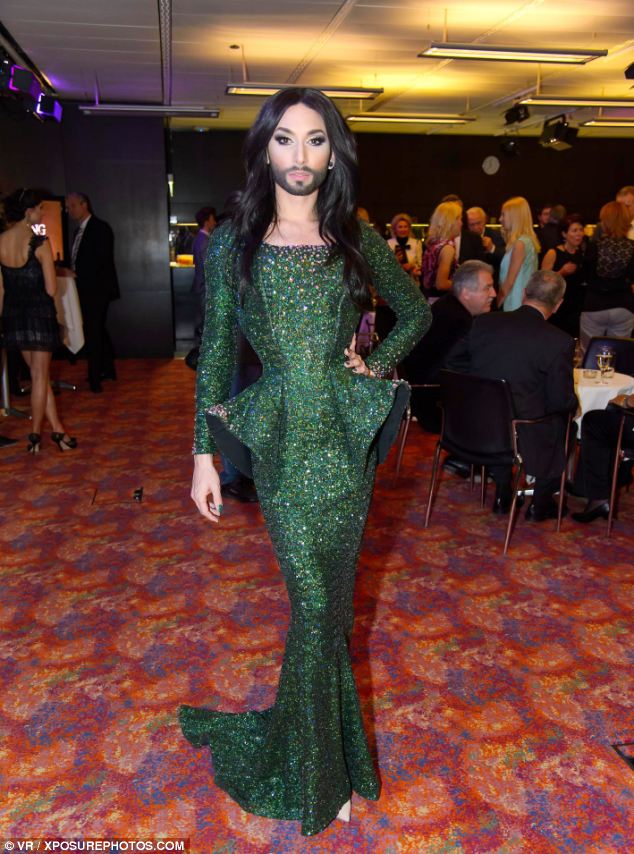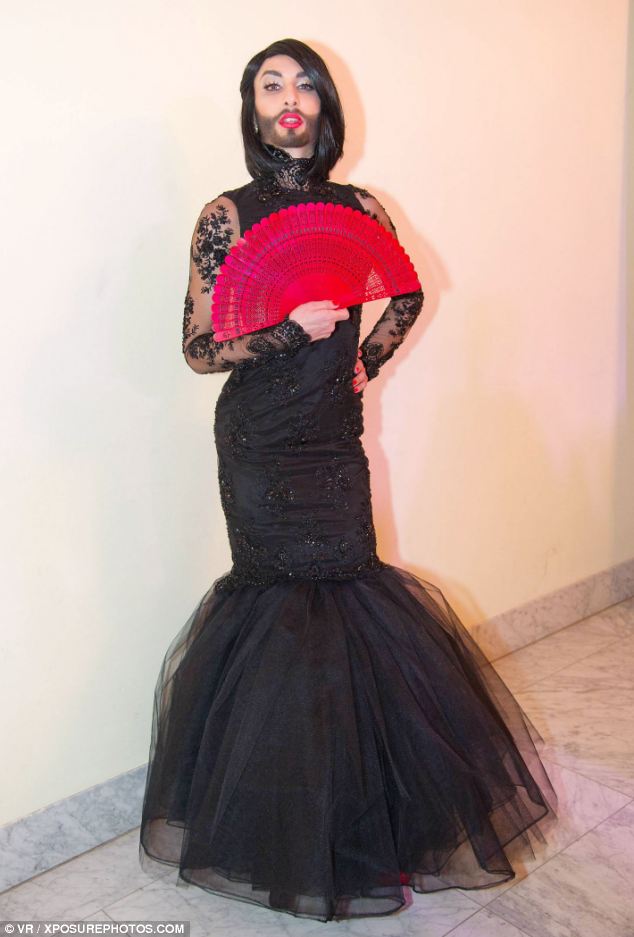Before she had a beard: See the amazing transformation of Conchita Wurst from male singer to Eurovision diva

The amazing transformation from male singer to bearded diva has turned Eurovision winner Conchita Wurst into a global superstar.
An audience of around 170million people across the world watched the Austrian triumph when she was awarded a staggering 290 points for her performance of Rise Like a Phoenix in Copenhagen on Saturday night.
Sporting a full beard and gold embellished fishtail gown, she took to the stage in front of a smokey backdrop, before giving a powerful performance of the song.
Conchita Wurst, winner of this year’s Eurovision Song Contest, left. This is after she transformed from being Thomas Neuwirth, right, who, as a young boy, would only dress up at his family home
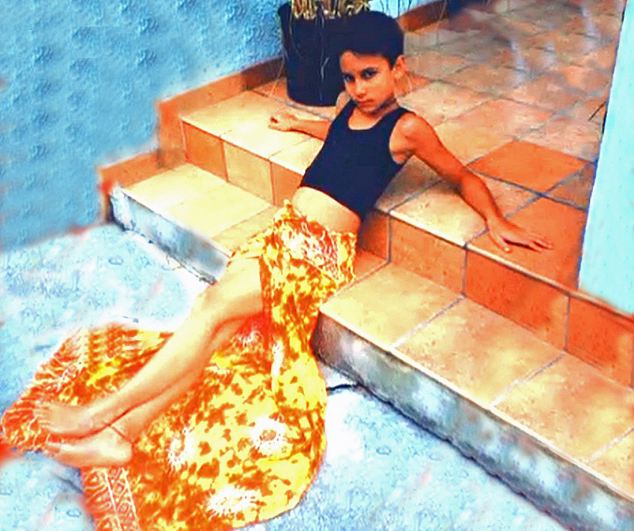
And with the performance earning her a legion of new fans, experts are predicting she could stand to earn as much as £25million, becoming the biggest Eurovision winner since Abba, who triumphed in the 1974 competition.
But before transforming into alter-ego Conchita Wurst, the 25-year-old whose real name is Thomas Neuwirth, tried to find fame in a boyband called Jetzt Anders, which translates into English as ‘Now Different’.
As a child her family home in Mitterndorf, southern Austria, was the only place she felt safe wearing a dress later revealing ‘It was only in the attic that I could be myself.’
Pictures show Thomas clean shaven, without the beard that brought Conchita Wurst to worldwide attention.
The boyband were put together by Austrian casting show, Starmania in 2007, where they reached the final.
But Thomas returned to the show in 2011 transformed as Conchita Wurst complete with long hair, fluttering eyelashes and the now world-famous beard.
Conchita was then selected to represent Austria in this year’s Eurovision contest with her eventual victory sending Twitter into a frenzy, generating 5,384,678 tweets.
Accepting the trophy, she said: ‘This is dedicated to everyone who believes in a future of peace and freedom. We are unity.’
But her victory caused outrage with some with one hardline Russian politician, Vladimir Zhirinovsky, even told national TV stations that her win meant ‘the end of Europe’. He added: ‘They don’t have men and women any more. They have “it”.
‘Fifty years ago the Soviet army occupied Austria. We made a mistake in freeing Austria. We should have stayed.’
Asked if she had anything to say to Russia’s president Vladimir Putin – who introduced a law banning ‘gay propaganda’ last year – she added: ‘I don’t know if he is watching this now, but if so, I’ll say it, “We’re unstoppable”.’
In the run-up to Eurovision, a series of politicians from Russia and Belarus had called for their state television networks to boycott the competition and edit Miss Wurst from their transmissions.
And hundreds of Russian men posted pictures on Twitter of themselves shaving off their beards in protest.
However, Miss Wurst simply attracted even more supporters, including Nigella Lawson, who posted a picture of herself with a mock beard on Twitter, one of a number of such images of the celebrity cook which appeared online.
Within Austria Miss Wurst is already a celebrity, having won second place on talent show The Big Chance in 2011. In another reality show she was filmed walking across the Namibian desert in high heels as she tried to live with native tribes.
The fashion graduate said that although Miss Wurst is ‘simply an artistic creation’, she behaves like a woman when she is dressed as her.
She added: ‘It’s obvious for example that when I am Conchita, I use the female toilet, and when I am Tom, the male toilet. I can assure you it’s never a problem for women, they love it.
‘I walk through the door and will happily ask, for example, “Hey ladies, does anybody have any lip gloss?” When not dressed as Conchita I am a man, and a lazy one at that.’
Many used the Eurovision final in Copenhagen to protest against Russia’s recent invasion of Ukraine.
Every time its teenage twins Anastasia and Maria Tolmachevy got votes, many in the 10,000-strong audience booed.
More jeers followed when Russia gave its top points to Armenia, Azerbaijan and Belarus, which are all former Soviet republics.
Политика конфиденциальности | Правила пользования сайтом


